As the Scottish Motorsport Marshals Club marks its 50th anniversary, Gayle Ritchie meets the volunteers who risk their lives to marshal at rallies and races across the country.
It has to be one of the world’s most dangerous hobbies.
And yet motorsport marshals take very little credit for their work, discreetly going about their business while engines bellow, pop and roar, and tyres screech round the track.
They are arguably the beating heart of UK motorsport; the silent heroes of the glory and glamour-soaked industry.
If they didn’t have a presence – helping with crashes, extracting drivers, removing wreckage, cleaning away gravel – motorsport events could not safely run.
As the Scottish Motorsport Marshals Club (SMMC) marks its 50th anniversary, we spend a morning with volunteers at Knockhill Racing Circuit to get a deeper insight into the hazardous hobby…
It’s a bright, sunny Saturday morning when I rock up at Knockhill, where excitement levels are through the roof.
Today is the first of a two-day racing spectacular, bringing together the fastest cars in the country.
The smell of fuel fills my nostrils as I step into the ‘safety car’ which chauffeurs me round to where volunteers from the SMMC rescue team are stationed.
Not used to such speed, I grip the handrail, white-knuckled, as the pimped-up Honda Civic whizzes round the track.
“That was quite sedate!” laughs driver Alan Barron. Meanwhile, I mop my sweaty brow.
I’m greeted by Jon Bolton, SMMC’s training coordinator, who’s sporting bright blue and yellow overalls.
After a quick chat – and because it’s noisy outside, with vehicles doing their pre-race test drives – we hop inside the rescue vehicle.
Jon describes this as a “cross between a fire engine and an ambulance”.
“This could be really exciting or the most boring morning of your life!” he smiles.
“Hopefully there won’t be any incidents requiring our assistance, but we’ve always got to be prepared.”
A big year
It’s a big year for SMMC, and members are keen to get the message across that anyone can get involved as a volunteer.
It’s a brilliant way to get up VERY close to the action – a petrolhead’s dream, but without having to get behind the wheel.
Marshals are stationed at points of potential danger around race tracks, and duties range from assisting at collisions to managing spectators and clearing debris or fuel spills.
The role affords them pretty much the best seats in the place, and the rare opportunity to go behind the scenes.
So what exactly does the SMMC do? Members – and there are currently around 290 – travel across the country to volunteer at motorsport events, whether rallies, speed events or circuit races.
“We’re a membership organisation of volunteer marshals who specialise in the safety aspects of motorsport,” explains Kinross-based Jon.
“As well as Knockhill, we do rallies and hill climbs – we cover pretty much every motorsport event in Scotland.
“We’re at Doune Hill Climb, the Snowman Rally in the Black Isle, the Speyside Stages Rally in Elgin, and the Jim Clark Rally in the Borders.
“Our rescue crews provide medical and extrication cover using specially converted vehicles.
“We’ve also got a motorsport radio group which provides a top-quality communications service on rallies to improve the safety of competitors, officials and spectators.”
Hazardous job
There’s no escaping the reality that it’s a hazardous job.
Generally a race doesn’t stop when marshals head onto the track to remove the mess left by an accident – cars continue behind the safety car at a reduced speed.
But the marshals are still out there, in the thick of it, essentially risking their lives.
I was doing my job alongside another flag marshal. I dragged him to the ground as the car went over our heads. He came through a bend too fast, hit the wall and somersaulted.”
JOHN BENNIE
If a car spins out of control and leaves the track, heading towards them, they are at huge risk of being injured or killed.
Most marshals I chat to don’t seem too concerned – their passion for the sport overrides any such fears.
Tragedies, however, do happen. In July 2021, 67-year-old marshal Robert Foote was killed at Brands Hatch after a car crashed and rolled over a safety fence into the marshal post where he was positioned.
The coroner determined that Mr Foote had died of serious head injuries caused by a ‘tragic accident’, and that nothing could have been done to prevent the incident.
Almost wiped out
There have, unsurprisingly, also been a fair few near-misses. I chat to marshal John Bennie – a member of SMMC’s rescue team since 2010 – about the time a race car almost wiped him out.
Falkirk-based civil servant John has travelled the world marshalling at Formula 1 and Indy car events for decades, but he’ll never forget the moment a Renault flew right over his head.
“I was at the British Grand Prix at Silverstone in 2004 when this Renault, driven by Jarno Trulli, soared over our heads and landed in the gravel track,” he recalls.
“I was doing my job, as a flag marshal, alongside another flag marshal. I dragged him to the ground as the car went over our heads.
“He came through a bend too fast, hit the wall and somersaulted.
“Amazingly the car landed on its four wheels, in an upright position, and Trulli stepped out the vehicle before being taken away in a medical car.
“I think we were a little more shaken than he was. That’s the kind of thing marshals are exposed to when they’re out there.”
Meanwhile, at Knockhill, when Mario Ferrari crashed his Ferrari in 2015, John and fellow marshals had to cut the roof off to get him out.
“He had a cracked pelvis so it was safer to extricate him,” says John. “Things happen, but we’re on hand to wipe up the tears.”
John has marshalled at races across the USA and Le Mans – plus he’s done 28 Grand Prix events, with four planned for 2023.
His latest role is as a mentor for 25-year-old Glasgow-based trainee marshal Sophie Harper.
Training programme
Sophie, who’s a student paramedic at the University of the West of Scotland, is in the midst of a two-year marshal training programme.
“I’ve loved motorsport for years and my grandparents, Olive and Campbell Harper, were rally drivers,” she tells me.
“I wanted to get more into it when I became a student paramedic. I got in touch with Jon (Bolton) and he invited me to Knockhill for an observation weekend in October.
“I had a baptism of fire though as there was a wee car pile-up with the Citroens! Luckily everybody was ok.
“My mentor is John (Bennie) and we go through the training while races are in action.
“I’ll eventually be a full-time paramedic but it’ll be good to do this at weekends and maybe join John for some international events.
“It helps you to know what to expect if you come across a road traffic accident.”
So does Sophie drive a flash, speedy car herself?
She laughs: “I have a Suzuki Splash! It’s a tiny 1L car! I’m a student so I can’t afford anything. I’d never say no to a Ferrari, though!”
Sophie’s friend, 18-year-old Isla Campbell, also a student paramedic, is here for the first time as an observer. “I haven’t passed my driving test yet, but I’d love to be a volunteer marshal,” she says.
Prison officers can volunteer, too!
I also meet Stirling-based SMMC member Chris McKeown, a prison officer in Edinburgh. He started as a trainee in 2019 and is now a fully qualified rescue crew member.
He helped during a big accident at The Snowman Rally last year, when Fiesta driver Ian Forgan ended up with two broken legs.
“He came through the corner, struck a tree, and took the engine out the front end of the car,” Chris recalls.
“We were the first rescue unit on scene. Ian and his co-driver managed to get themselves out the car so we made sure they were ok, assisted the doctor, and kept spectators away from the crash scene while seeing him into the ambulance.”
As we’re chatting, the radio pipes up, and we hear there’s a car – a Legend (a scaled-down model of a US Chevrolet) – off the track on a corner. It’s a tense moment.
We watch as the recovery team gets it off the gravel – there’s nothing for SMMC to do in this case.
Heart-stopping moments
A few minutes later, a Fiesta goes off the track, and there’s a heart-stopping few seconds when there’s a bang and smoke starts flowing out of the vehicle.
A fire truck heads straight for it – just in case – as it turns out to be an oil spill. Nobody is injured but the driver sees a premature end to his fun day out.
Marshals are ready to spring into action at the drop of a hat. “You’ll normally hear the screeching of metal, or something that’s not right,” says Jon.
“You’ll also hear from the tone of voice on the radio.
“There are priority words – urgent, priority and safety, and red flag, which means the race stops. We’ll go as a cavalcade to the incident, along with doctors and fire rescue.”
Jaws of life
Jon, whose ‘day job’ is as a learning and development consultant, is keen to show me some of the gear stored in the rescue unit – it carries trauma equipment, and scary-looking cutting gear, which he refers to as the ‘jaws of life’.
“So here’s a scenario for you – if a car crashed and burst into flames, there’d be a call for a red flag and rescue and recovery would be deployed,” he says.
“We’d attend the crash site, assess the driver, and then set about getting him, or her, out. If that’s not possible then we need to take the car apart using the ‘jaws of life’.
“We’ve got a stretcher and oxygen, too, if needs be.”
While SMMC members include paramedics and doctors – the club’s medical advisor is a consultant anaesthetist and intensive care specialist at Ninewells – the rescue crew are all medically trained.
Doctors on board
One of the doctors here today is Edinburgh-based palliative medical consultant Charlie Hall.
“I’ve always loved motorsport and when I was a medical student I got interested in Knockhill, nearly 18 years ago,” he tells me.
“As I went through my training I shadowed the team, and after a few years I was able to work as one of the doctors with SMMC.
“It’s been great experience; very different from my day job, and SMMC makes you feel part of a motorsport community.
“I’ve been working regularly at Knockhill for 10 years and in that time we’ve had some complex situations but we’re always well supported by trauma teams and ambulances.
“We frequently support patients getting up to Ninewells. “
A highlight of his voluntary role, Charlie admits, is getting to drive like a speed demon.
“If there’s an incident and they need a doctor, you get to drive fast round the circuit!” he beams.
“The driving part is a bonus for a doctor who’s a petrolhead like me.
“But the main thing is to arrive there safely so you don’t end up as another casualty, which would be embarrassing.”
‘Once it gets under your skin…’
I also meet Edinburgh-based Nick Clarke, one of SMMC’s trustees and the marshalling coordinator.
His role today is as clerk of the course, which involves overseeing the event, ensuring rules are adhered to, and that races are safe and fair.
“I’ve been marshalling for 51 years, starting off at Ingliston, but I’ve been a member of the SMMC for 40-plus years,” he says.
“Once it gets under your skin, you can’t leave it be.
“I’m not mechanically minded – I just enjoy being involved. Being an official or administrator is the driest, warmest, safest place to be.
“I try not to make a big thing of any incidents, when drivers get hurt or damaged, but there’s far more emphasis on safety than there used to be, and on the safety of marshals, too.”
Anyone can get involved in marshalling and there are a wide range of duties to suit everyone, almost irrespective of age, gender or disability.
The best way to get started is to attend a taster, or ‘observation’ day, with the SMMC. Volunteers don’t get paid, but they do get food, and the banter is unbeatable.
The training days are also fantastic – where else might you get the chance to set off a fire extinguisher without fear of someone shouting at you?
“The SMMC has been around for 50 years and while it was set up as a marshalling club, it’s evolved into a safety services set-up, so we run all the rescue units and safety radio networks,” explains Jon.
“We cover about 90 to 100 events a year, which is around 15,000 hours of volunteers’ time. It’s such a great feeling to be of use.
“You’ll meet like-minded folk, passionate about motorsport, and if you want to take things further, you can be an international marshal like John (Bennie).”
SMMC has come a long way
The SMMC’s chairman, Dundonain Garry Headridge, adds: “We can only guess what the founding members of the club saw in the future when they realised more than 50 years ago that safety of competitors, officials and fellow marshals had to be improved at motorsport events.
“With its state-of-the-art safety units, it’s come a long way from the first van acquired from a distillery which came complete with holes in the floor and was equipped with odd pieces of equipment and tools!”
“Ultimately, every event relies on marshals. No marshals, no motorsport – it’s as simple as that.”
- Fancy becoming a motorsport marshal? Check out smmc.org.uk
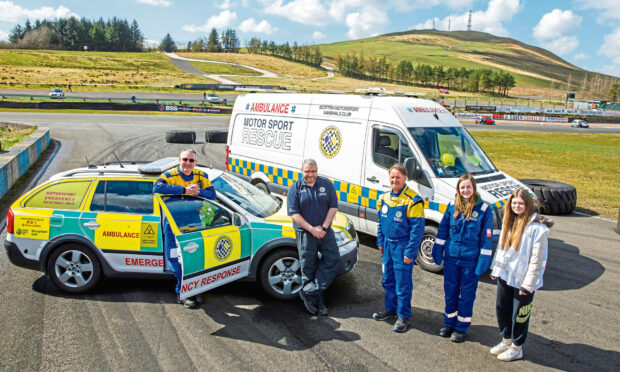

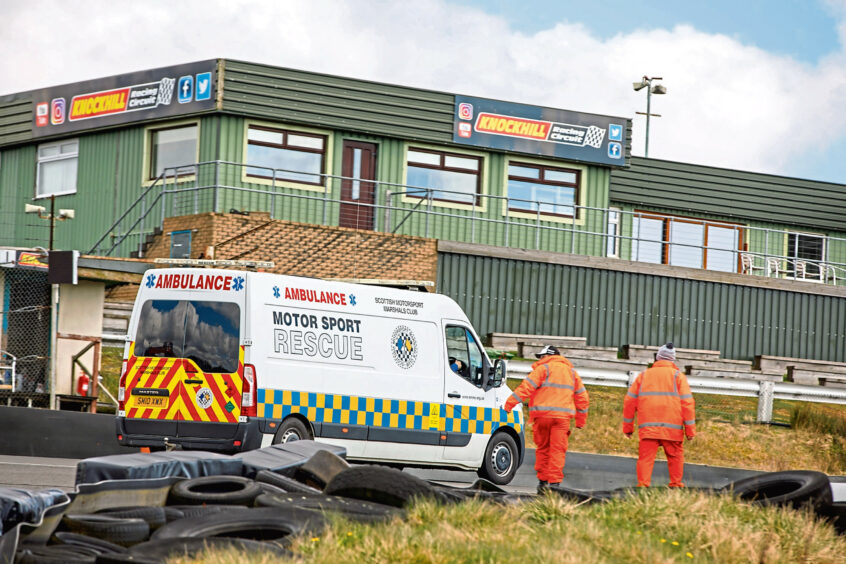

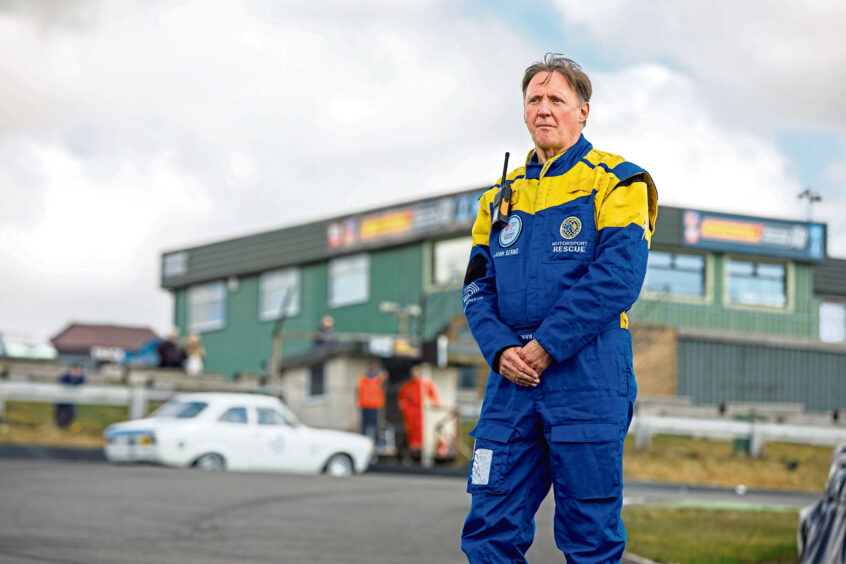
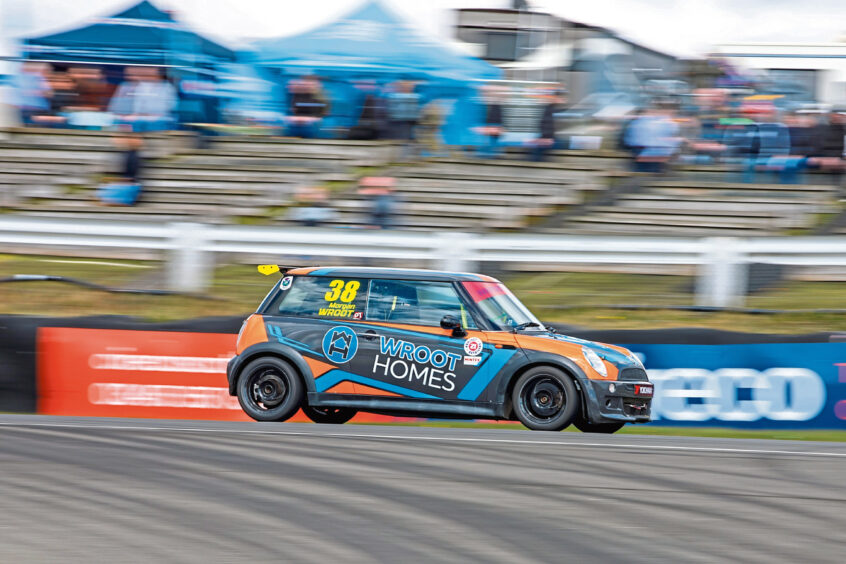
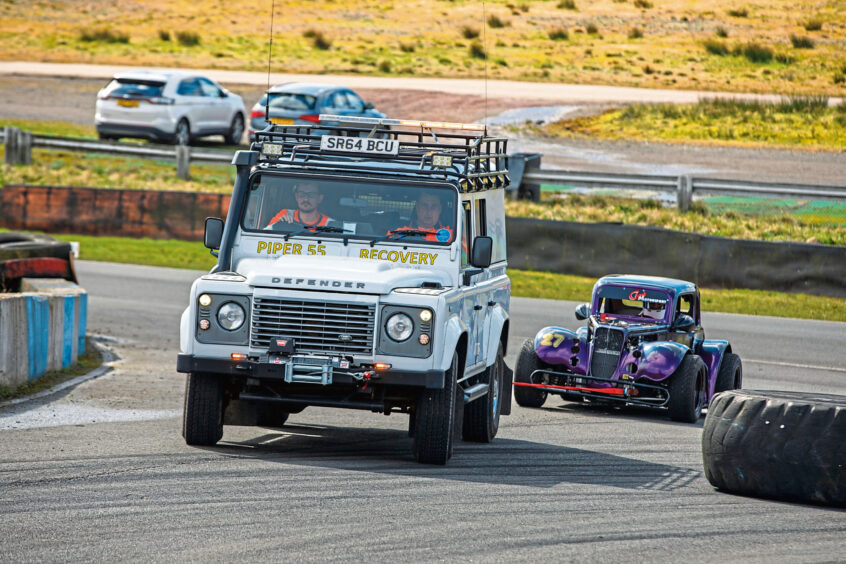
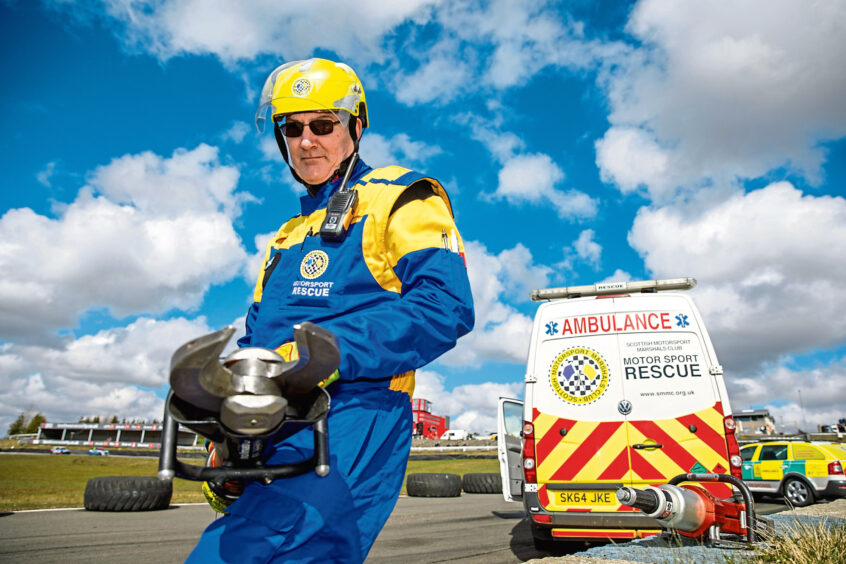

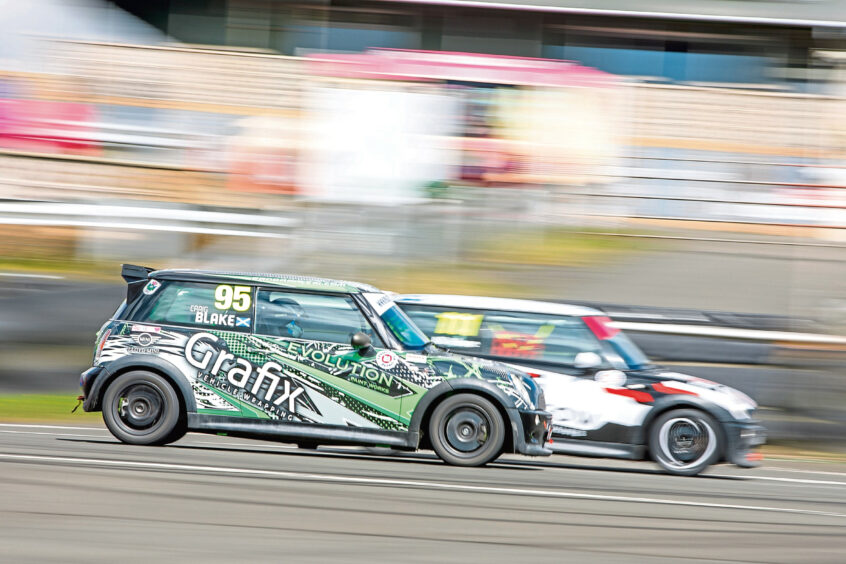
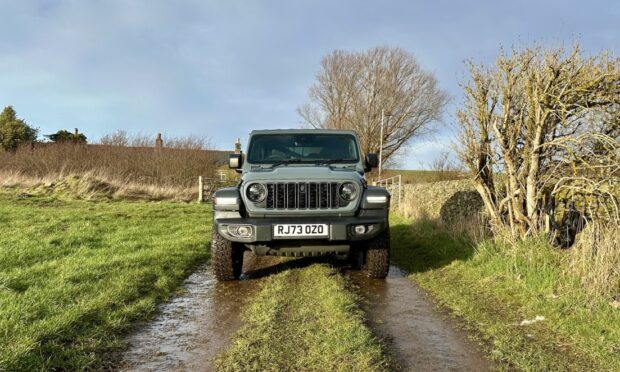
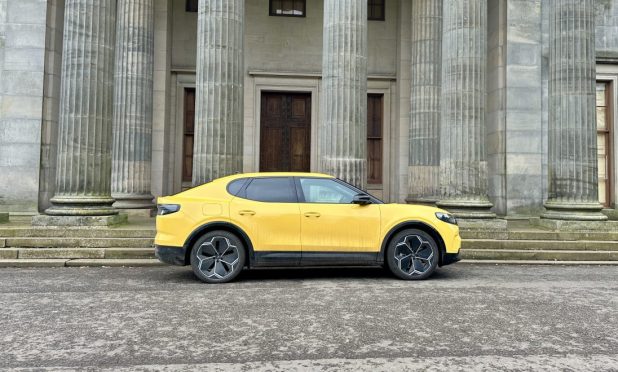

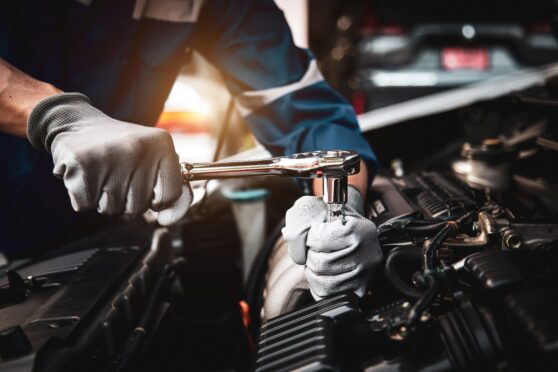
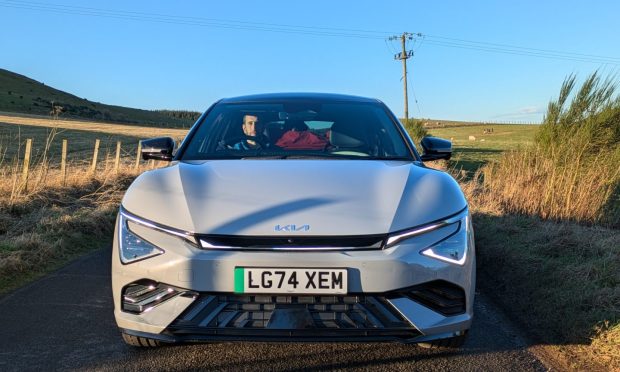
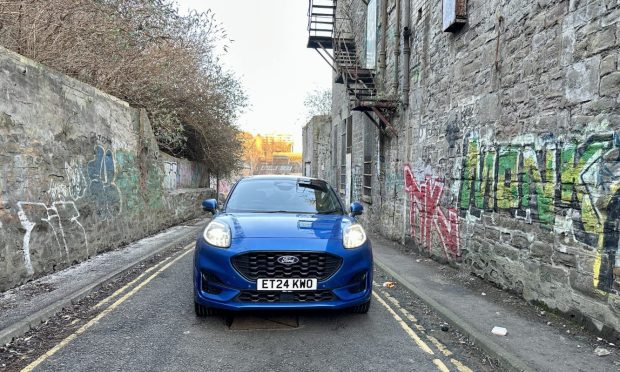
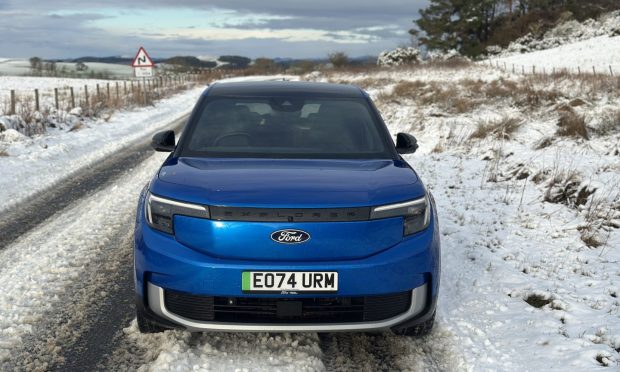
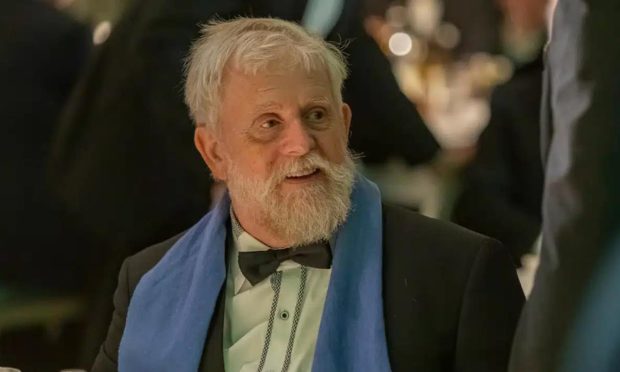
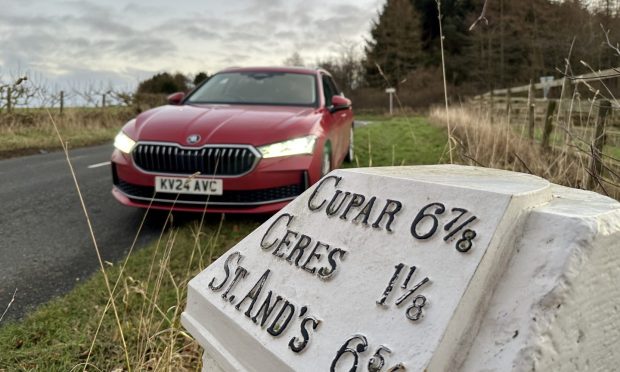

Conversation